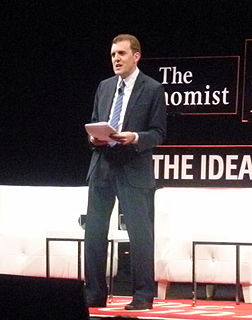A Quote by Gary Shteyngart
I'd love to have a 19th Century Russian book club where all the members had to act like the pretentious minor noblemen they were reading about.
Related Quotes
I was really interested in 20th century communalism and alternative communities, the boom of communes in the 60s and 70s. That led me back to the 19th century. I was shocked to find what I would describe as far more utopian ideas in the 19th century than in the 20th century. Not only were the ideas so extreme, but surprising people were adopting them.
For most people, what is so painful about reading is that you read something and you don't have anybody to share it with. In part what the book club opens up is that people can read a book and then have someone else to talk about it with. Then they see that a book can lead to the pleasure of conversation, that the solitary act of reading can actually be a part of the path to communion and community.
People have asked me about the 19th century and how I knew so much about it. And the fact is I really grew up in the 19th century, because North Carolina in the 1950s, the early years of my childhood, was exactly synchronous with North Carolina in the 1850s. And I used every scrap of knowledge that I had.
Although the stories are very present in my book, and very present in my mind, what I was most interested in was the question of why it had attracted such a following in the 18th Century. It's less mysterious that it attracted a following in the Romantic period, and in the 19th Century, but the early 18th Century when the Rationalists fell in love with it...that was mysterious. What I wanted to look at was the forms of enchantment.
The 19th century Mormons, including some of my ancestors, were not eager to practice plural marriage. They followed the example of Brigham Young, who expressed his profound negative feelings when he first had this principle revealed to him. The Mormons of the 19th century who practiced plural marriage, male and female, did so because they felt it was a duty put upon them by God.
Repression is good for cultural achievement. Let's face it. What are gay boys going to be like? I always like to say the 19th-century gay boy was Oscar Wilde, the 20th-century gay boy was Stonewall and ACT UP. And in the 21st century, we have blocking people on Grindr. That's what we've accomplished. Without some kind of traction.
There is not one particular moment that can account for the shift from the social issue concerns of 19th-century evangelicals into the state of American evangelicalism today. Some historical moments are telling. The rise of biblical criticism in the 19th century forced evangelicals to make choices about what they believed about the gospel.






































